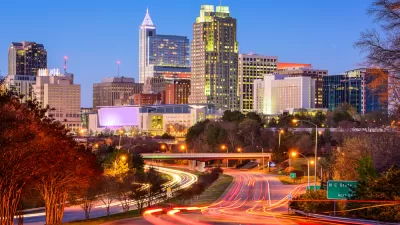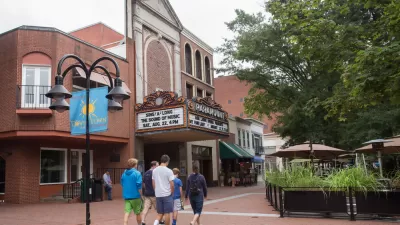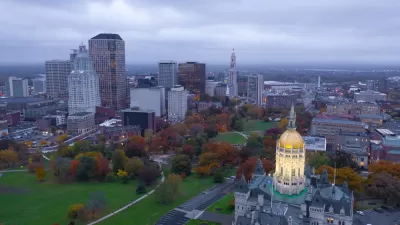Public hearings are underway in Raleigh to discuss the zoning changes necessary to implement the city's Unified Development ordinance. Heated rhetoric was inevitable.
Jane Porter reports on the lessons available from a process to rezone the city of Raleigh, following a contentious City Council hearing earlier this month.
"Convinced there's some jiggery-pokery going on in the city's planning department, or on Council, or somewhere, one resident after another railed (in two-minute bursts, lest they run afoul of Mayor Nancy McFarlane's merciless timekeeping) for three long hours against increasing density just about anywhere in the entire city," according to Porter.
"Despite the furor, this remapping was neither new nor unexpected. In fact, the city had been building up to it for years—first with the comprehensive plan in 2010, then with the Unified Development Ordinance in 2013. Now the city is determining which areas fall within the new zoning districts created by the UDO," reports Porter.
The main point of the article is to list ten things Porter learned at the most recent hearing. The list provides commentary on every side of the debate. So, for instance, on item notes that the "city has a communications problem" and another says "Oakwood people are high maintenance." Couched in the commentary, however, are lots of observations about the nitty gritty proposed by the zoning changes meant to implement the UDO.
One thing the article makes clear: the slightest hint of density is a live wire in the debate over Raleigh's UDO. For more insight into how the city of Raleigh is approaching its continuing growth, Planning Director Ken Bowers recently spoke with Josh Stephens as the latest installment of Planetizen's "Planners Across America" series.
FULL STORY: 10 things we learned at Raleigh's rezoning ruckus

Study: Maui’s Plan to Convert Vacation Rentals to Long-Term Housing Could Cause Nearly $1 Billion Economic Loss
The plan would reduce visitor accommodation by 25,% resulting in 1,900 jobs lost.

North Texas Transit Leaders Tout Benefits of TOD for Growing Region
At a summit focused on transit-oriented development, policymakers discussed how North Texas’ expanded light rail system can serve as a tool for economic growth.

Using Old Oil and Gas Wells for Green Energy Storage
Penn State researchers have found that repurposing abandoned oil and gas wells for geothermal-assisted compressed-air energy storage can boost efficiency, reduce environmental risks, and support clean energy and job transitions.

Private Donations Propel Early Restoration of Palisades Playground
Los Angeles has secured over $1.3 million in private funding to restore the Pacific Palisades playground months ahead of schedule, creating a modern, accessible space that supports community healing after recent wildfires.

From Blight to Benefit: Early Results From California’s Equitable Cleanup Program
The Equitable Community Revitalization Grant (ECRG) program is reshaping brownfield redevelopment by prioritizing projects in low-income and environmental justice communities, emphasizing equity, transparency, and community benefits.

Planting Relief: Tackling Las Vegas Heat One Tree at a Time
Nevada Plants, a Las Vegas-based nonprofit, is combating the city’s extreme urban heat by giving away trees to residents in underserved neighborhoods, promoting shade, sustainability, and community health.
Urban Design for Planners 1: Software Tools
This six-course series explores essential urban design concepts using open source software and equips planners with the tools they need to participate fully in the urban design process.
Planning for Universal Design
Learn the tools for implementing Universal Design in planning regulations.
Ascent Environmental
Borough of Carlisle
Institute for Housing and Urban Development Studies (IHS)
City of Grandview
Harvard GSD Executive Education
Toledo-Lucas County Plan Commissions
Salt Lake City
NYU Wagner Graduate School of Public Service





























